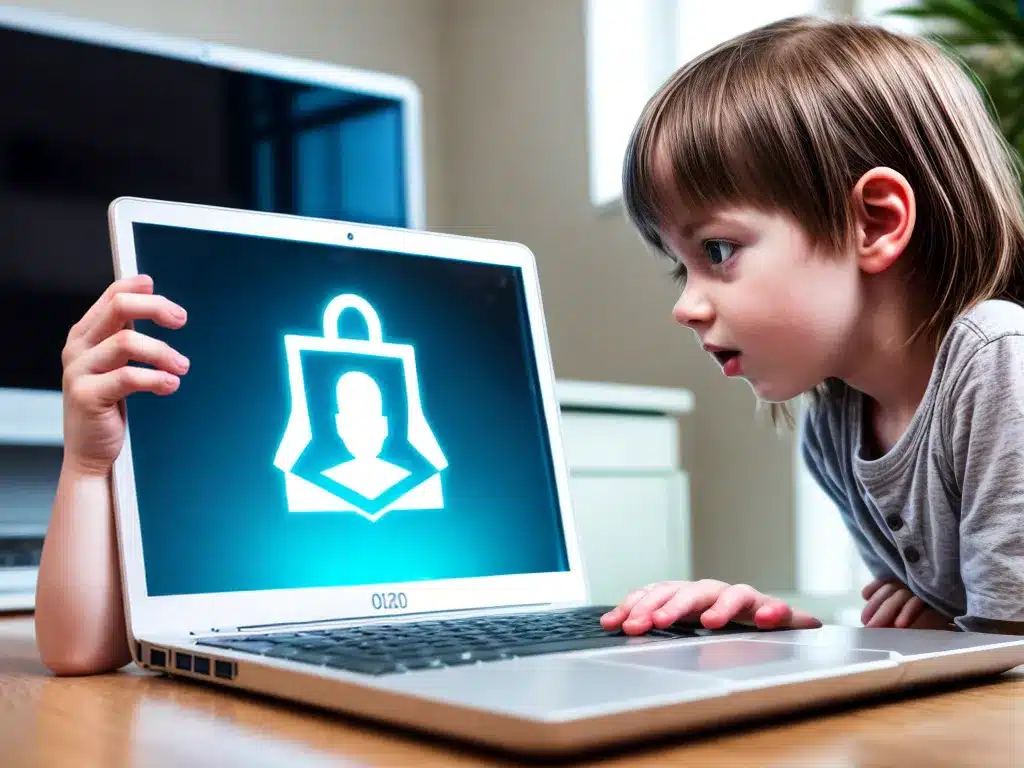The internet opens up a world of possibilities for our children, but it also exposes them to new dangers like online predators. As parents, it is our job to keep our kids safe while still allowing them to benefit from technology. In this article, I will provide an in-depth look at tactics you can use to protect your children from predators online.
Monitor Their Online Activity
The first line of defense is supervising what your kids do online. Be aware of the websites they visit, their social media activity, the games and apps they use, and their online friends.
-
Install parental control software on devices to block inappropriate content and track their activity. Programs like Norton Family allow you to see search history, set time limits, and prevent access to adult sites.
-
Learn about the apps and games they use. Make sure chat and image sharing functions are disabled. Predators target popular teen apps like Snapchat, Instagram, and TikTok.
-
Keep devices in high-traffic areas at home so you can casually monitor use. Do not allow internet-enabled devices like phones and tablets in bedrooms.
-
Review privacy settings and personal info they share online. Teach them not to reveal personal details publicly on social media.
-
Get to know who they chat or game with online. Ask about their online friends just as you would their school friends.
Educate Them on Online Safety
Have regular conversations about online safety and predators from an early age. Teach kids how to make smart decisions online.
-
Explain that the internet is public and anything shared can be seen by strangers. Predators can disguise themselves as friends.
-
Warn about sex talk online. Teach kids to leave conversations that make them uncomfortable. Let them know predators groom victims with compliments, gifts, flirting, and sharing provocative photos.
-
Set firm rules about meeting online friends in real life and sharing pictures. Children should never agree to meet an online friend alone.
-
Role play how to handle suspicious messages or requests. Practice refusing inappropriate requests assertively but politely.
-
Remind kids they can come to you if they encounter anything online that worries them without fear of losing technology privileges. You want to help keep them safe.
Limit Access to Adult Content
Pornography and adult chat rooms often expose kids to predators. Take measures to limit access to mature content online and on TV.
-
Use parental controls to block inappropriate content on home WiFi networks, devices, streaming platforms, and cable boxes.
-
Keep computers in high-traffic family rooms, not private spaces.
-
Talk to kids about the dangers of risqué websites and chatting with strangers online. Let them know they can always come to you if someone makes them uncomfortable online.
-
Set YouTube to restrict mode to limit mature content. Monitor videos they watch on YouTube and TikTok.
-
Learn how to check browser histories. If your child knows how, have them show you so you can spot check periodically.
Teach Smart Social Media Use
Social platforms like Instagram, Snapchat, and Facebook are filled with predators disguising themselves as teens and young adults.
-
Set all accounts to private so only approved friends can see posts and engage. Instruct them to only accept follow requests from people they know.
-
Remind kids not to accept friend requests from strangers. Many predators create fake profiles pretending to be teens.
-
Limit sharing personal info like address, school, phone number, and birthday publicly or with strangers.
-
Discourage sharing provocative photos, even privately. Teach teens sexting is dangerous, as images can be leaked.
-
Talk about red flags like older “friends” who flatter or ask personal questions. Show them how to block and report suspicious accounts.
Pay Attention for Signs of Grooming
Look for behavioral changes that may indicate an online predator is grooming your child:
-
Increased secrecy about online activity and reluctance to discuss internet use.
-
Evidence of an older online friend sending gifts, money, or excessive compliments.
-
Sudden increased internet use, especially late at night.
-
Using adult language or showing interest in adult topics, especially sex.
-
Withdrawing from family activities and real-world friends.
-
Defensiveness if you attempt to discuss or monitor their online activity.
Take steps to investigate if you spot any of these red flags. And remind kids they can always come to you for help dealing with someone online who makes them uncomfortable. Reassure them you are on their side.
Emphasize Open Communication
Foster an environment of openness about online activity that makes kids feel safe coming to you.
-
Ask questions and show interest in their online interests to keep an open dialogue. Don’t overreact or judge.
-
Set reasonable guidelines together. Explain rules are for their safety, not punishment.
-
Have your child introduce you to their online friends both in games and on social media when possible.
-
Reassure kids they won’t get in trouble for telling you if someone makes them uncomfortable online. Make them feel safe coming to you.
-
If a child discloses concerning interactions, report to the platform and authorities. Praise them for coming forward. Get counseling if needed.
The online world provides kids amazing opportunities for learning and connecting, but also potential risks from predators. Stay involved in your child’s online life, educate them about safety, keep communication open, and act on any red flags. Working together, we can help keep kids safe while allowing them to benefit from technology.












